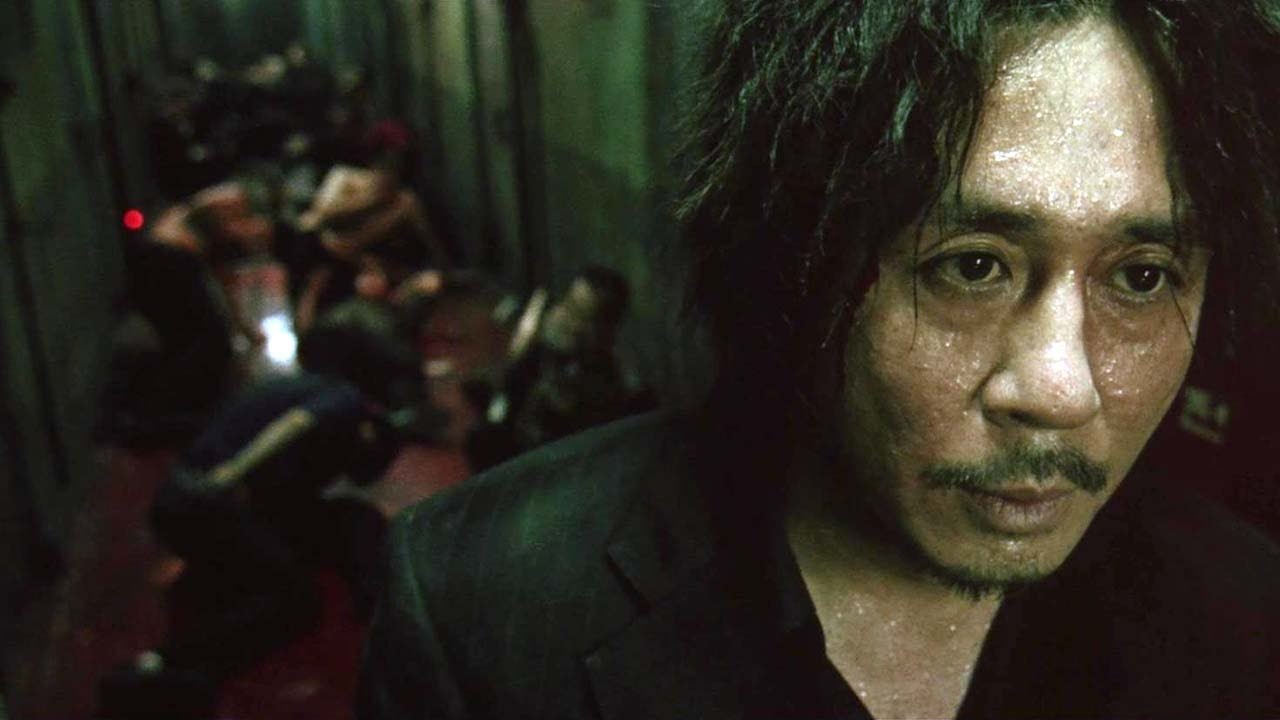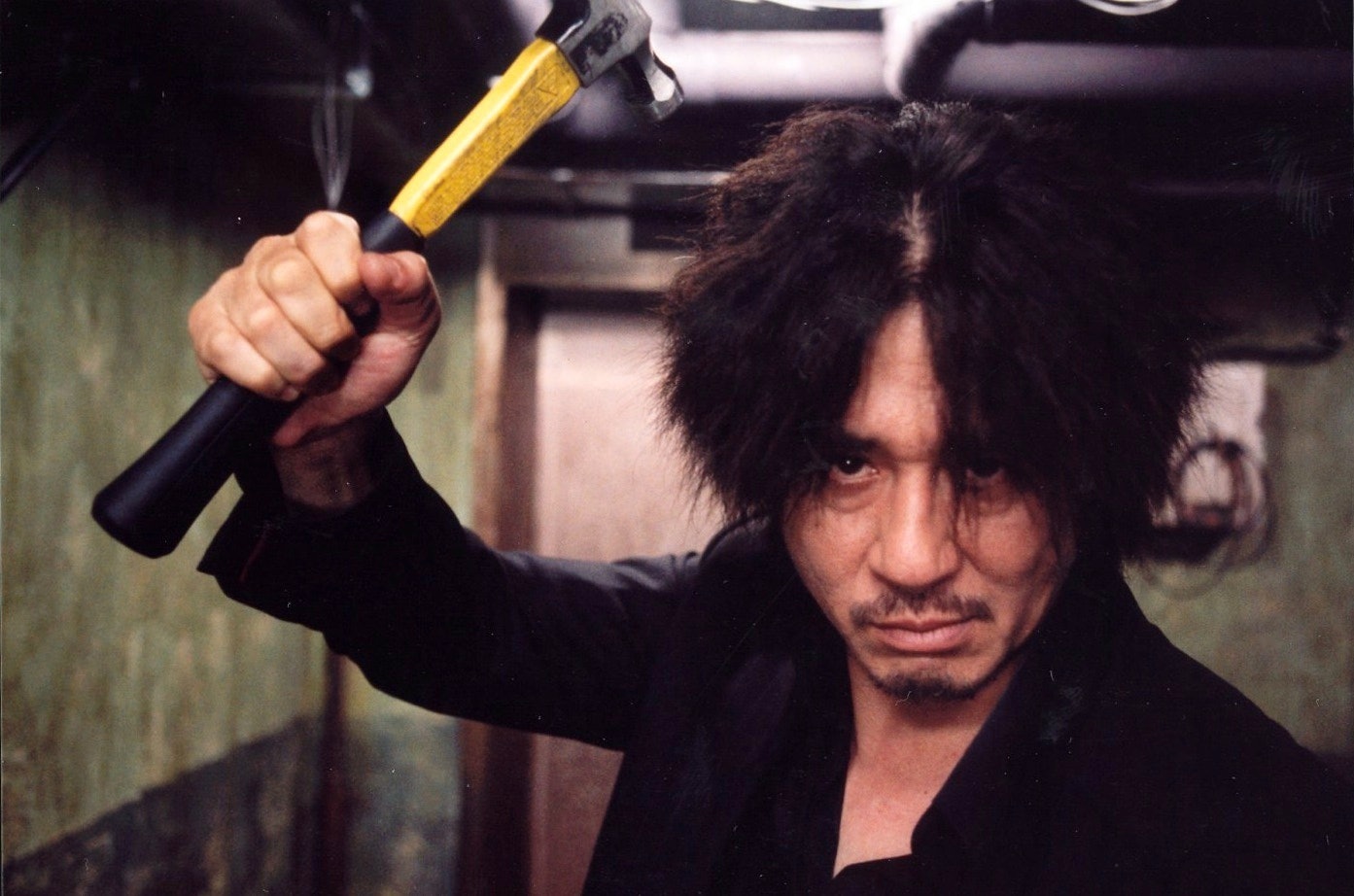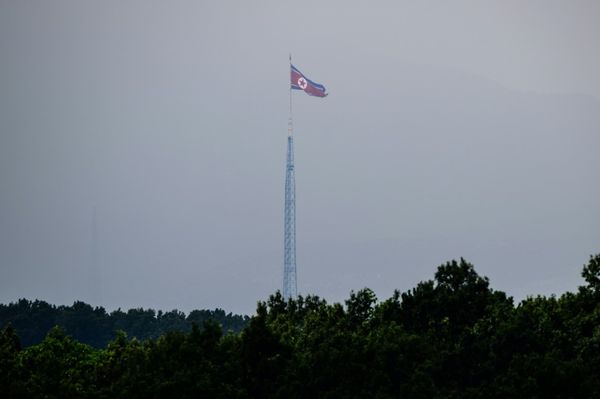
The late 20th century revitalized South Korean cinema. Censorship laws had previously made filmmaking a stringent process, and further laws limited the country’s exposure to foreign films. Once these laws were weakened, South Korea entered a cinematic renaissance. The success of this boom period pushed the country onto a larger stage; from the ’80s onward, South Korean films began making confident strides into international markets and the global awards scene.
South Korea’s renewed attention reflected a broader trend. The ubiquity of the internet, a growing receptive audience abroad, and a thriving home video market meant Asian films that would’ve previously just been tidbits in a film journal, like Takashi Miike’s gruesome Audition, were becoming better known to western enthusiasts, and relatively easy to track down. But one name, Park Chan-wook, was at the head of the pack in the early aughts, and this era of success would be exemplified by his now classic Oldboy.
Park’s 2000 film Joint Security Area had become the highest-grossing South Korean film ever, and the critical favorite was getting noticed at events like the Seattle and Berlin International Film Festivals. He’d follow that up with the bloody revenge drama Sympathy for Mr. Vengeance and then, in 2003, the film many consider his best, Oldboy. It tells the story of Oh Dae-su, a man mysteriously locked in a room for 15 years who’s suddenly released. He then has to literally carve a path through the plot to find the culprit behind his imprisonment.
It’s violent and filled to the brim with doomed tragedy, culminating in a twist ending that left audiences surprised and deeply unsettled. It also contains one of the most influential action scenes in modern cinema. At one point, Oh Dae-su has to fight through a corridor of private prison guards, and echoes of its brutality and ingenuity can be found in everything from low-budget adventure movies to big-budget Marvel blockbusters. If one thought major film festivals only trafficked in impenetrable dramatic fare, Oldboy was a swift reminder otherwise.

It was fifth at the South Korean box office in 2003 and swept across the awards circuit, with its peak coming at Cannes, where it nabbed the Grand Prix and was nominated for the Palme d’Or. Oldboy was the first South Korean film to take the award, but the showing at the event sounded like a nerve-wracking experience for Park, who admitted to being unable to enjoy his own movie. “The first time I watched it, at Cannes,” he told IndieWire, “I was with an actual audience and concerned with how they were reacting, so I wasn’t really focused on the film.”
Almost as important as the award was who had fought to give it to him. Quentin Tarantino had long been an outspoken advocate for Asian films overlooked in favor of American cinema. He’d been excited about Oldboy from the moment he heard about it, and he campaigned for it to take the Palme d’Or. While he was outvoted in favor of Michael Moore’s documentary Fahrenheit 9/11, this in no way lessened the director’s passion. Park was surprised and gratified by the fervor Tarantino had shown, making him “want to see my own film” after he’d had such an anxious time around its festival audience. He’d end up crediting Tarantino’s support for Oldboy’s eventual North American distribution.

Oldboy hadn’t just ticked off Tarantino’s particular boxes, though. Roger Ebert gave it four stars, saying, “Oldboy is a powerful film not because of what it depicts, but because of the depths of the human heart which it strips bare.” The BBC called it a “sadistic masterpiece,” and Salon deemed it “dazzling.” Its legacy is such that, almost 20 years after its initially limited American debut, it easily out-earned its box office in a re-release. Unsurprisingly, it’s often considered one of the greatest films of all time, foreign language or otherwise.
Oldboy wasn’t alone in South Korean cinema being recognized worldwide, not even in the class of 2003. A Tale of Two Sisters, a terrifying psychological horror and a box office smash, became the first South Korean film to be shown widely in American theaters, while Memories of Murder received terrific reviews in the New York Times, the Washington Post, and Variety. Its director? Bong Joon-ho.
A little over 15 years later, Bong’s Parasite would become the first South Korean film to win the Palme d’Or, the prize Oldboy had just missed out on, along with Academy Awards for Best Picture, Director, Original Screenplay, and International Feature Film. Park’s career has only flourished since then, with amazing films like Thirst, Stoker, The Handmaiden, and Decision to Leave to his credit. Amid that impressive filmography, Oldboy remains a terrific example of how an off-kilter film can take the world by storm, and how South Korea, a country that previously seemed at odds with its own art, can produce a line of masterpieces.







